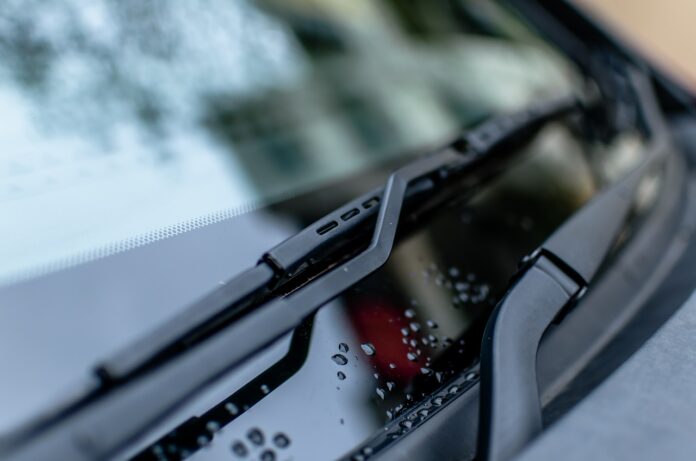Three heatwaves are forecasted to sweep through the UK in June, tempting sun-seekers to hit the open road or flock to the beach for a sun-kissed glow. But have you checked in on your four-wheeled pal to ensure it is ready to take on the baking sun?
To help car owners prepare for the scorching weather, the experts at Carlease.co.uk have shared their top maintenance tips to ensure your car is in for a smooth cruise this summer.
Key points:
-
Car experts shares that nitrogen-filled tyres could fight pressure fluctuations as the temperature increases.
-
Swapping out your clogged air filter could save you up to £1,000 for AC repairs.
-
Put your brakes to the test before setting off on your long journey.
Seven car maintenance expert tips to prep your vehicle for summer
-
Is your tyre overinflated? Consider swapping to nitrogen
Warm summer months often spell a surge in tyre-related accidents as tyre pressure naturally rises in the heat. Typically, for every 10°C increase in temperature, the pressure of tyres changes between 1 or 2 pound-per-square-inch. Without proper handling, drivers might face a tyre blowout, risking their own safety due to reduced traction from overinflated tyres. Always check their condition using a good-quality gauge and inflate them to the manufacturer’s recommended level ahead of long drives.
Consider filling your tyres with nitrogen instead of air, as it shows less pressure fluctuation with temperature swings. Before making the switch, check with your tyre manufacturer to ensure compatibility.
-
Ensure your air conditioning is in tip-top condition
Traffic jams and sweltering cars can be a recipe for disaster if your air conditioning isn’t functioning properly. To avoid frustration, do regular checks and test the airflow within the vehicle by running the AC to its highest settings. Observe the type of air blowing out – is it weak or even worse, hot? Listen for any unusual noises coming from your car’s AC system as it could be a sign of problems such as a broken condenser or fan belt, which would require professional attention. If it’s already been two years since your last regassing, it’s time to replace the old refrigerant gas with fresh refrigerant to stay cool all summer.
-
Replace the wiper blades for summer downpours
It’s not unheard of to have the UK sun catapulted back to rain, wind (and sometimes hail) even during summer. Prepare your car for any weather and replace worn-out wiper blades to maintain optimal visibility during sudden downpours or glare from the sun. Check for signs of deterioration such as cracks or splits, and ensure the wiper blades are making full contact with the windshield.
-
Say no to clogged car filters
Thick debris and salt can clog your car’s air filter if left uncleaned for a long period, reducing fuel efficiency and compromising the air quality within your vehicle. The increased use of air conditioning in hotter months can strain the engine if you’re running on a blocked filter, causing unnecessary wear to your AC units that could incur repair costs of up to £1,000.
As a rule of thumb, replace your air filter every 12 months or 12,000 miles – depending on the road and air conditions you drive in – as a clean filter can improve gas mileage by up to 10% and extend the life of your car. Doing so can also keep your car pollutant-free, especially during summer when pollen counts are high.
-
Check coolant levels to prevent overheating
An overheated engine can lead to a domino effect of costly repairs, and even total engine failure. Extreme heat depletes engine fluids sooner, hence it’s crucial to maintain a well-tuned cooling system when the sun is at its peak. Open the hood and regularly check the coolant level. A combustion engine is most efficient at around 93°C, anything too high can result in metal parts melting and fusing together. To keep this essential fluid working at its best, flush the radiator and top up new coolant every two years to reduce the risk of overheating.
-
Put your brakes to the test
Summer road trips often mean longer journeys and heavier traffic. As a vital safety feature, it’s crucial to ensure your brakes are always in top condition – especially after colder months where ice and road salt can deteriorate your braking system. Take your car for a test drive and pay attention to any excessive squealing and grinding. If the brakes feel ‘spongy’ or are slow to respond, it’s a sign they need professional inspection and possibly replacement. Also check for wear on the brake pad lining and ensure the brake shoes haven’t worn down below the manufacturer’s recommended thickness, ideally 3mm.
-
Change the oil and oil filter
Credit: https://www.carlease.co.uk/

| [donate]
| Help keep news FREE for our readersSupporting your local community newspaper/online news outlet is crucial now more than ever. If you believe in independent journalism,then consider making a valuable contribution by making a one-time or monthly donation. We operate in rural areas where providing unbiased news can be challenging. |


















